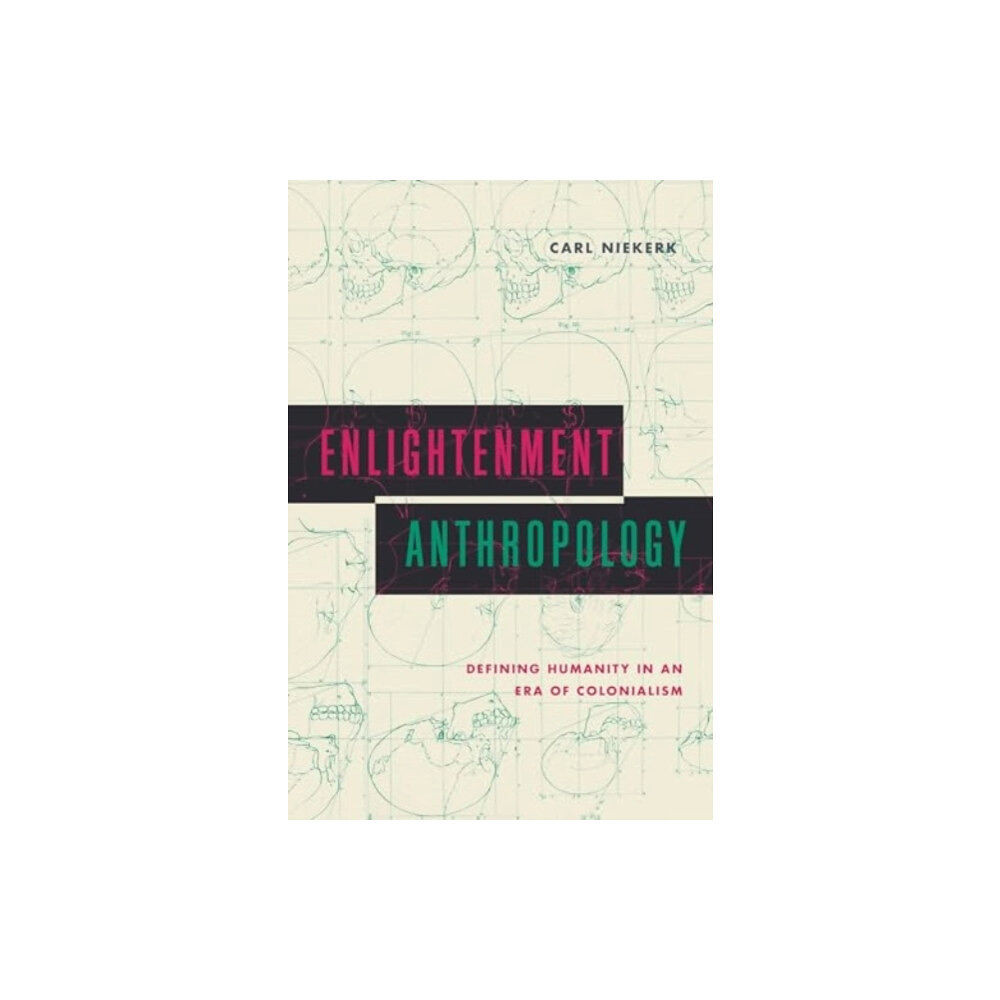- Hem
- Böcker
- Kurslitteratur
- Samhälle & Politik
- Enlightenment Anthropology (inbunden, eng)

Enlightenment Anthropology (inbunden, eng)
In this book, Carl Niekerk probes the origins of modern anthropology in the European Enlightenment, foregrounding how the knowledge transfer...
1 369 kr
1 415 kr
Slut i lager
- Fri frakt
Fri frakt över 299:-
Snabb leverans
Alltid låga priser
Produktbeskrivning
In this book, Carl Niekerk probes the origins of modern anthropology in the European Enlightenment, foregrounding how the knowledge transfer between an international array of natural historians and public intellectuals—including Georges-Louis Leclerc, Comte de Buffon; Voltaire; Denis Diderot; Johann Friedrich Blumenbach; Immanuel Kant; and Johann Gottfried Herder—shaped the emerging discipline and its central debates.
Reexamining how these many voices crossed paths and diverged, Niekerk sharpens our understanding of how anthropology, as we know it today, came to be. As a “natural history of man,” anthropology during the Enlightenment argued that humans across the globe belonged to a single species and that human diversity could be explained as the product of time and space, climate and geography.
While this knowledge could be emancipatory—fostering curiosity rather than superiority around questions of difference among some thinkers—it also contributed to the emergence of new notions, especially “race” and “culture,” that were used by many to justify slavery and the colonial project.
With an emphasis on how we can use the ambiguities and deficiencies of the past to help guide our thinking and actions today, this book will appeal to a widely interdisciplinary audience, including anthropologists, historians and philosophers of science, intellectual historians, Germanists, and scholars of the European Enlightenment.
Reexamining how these many voices crossed paths and diverged, Niekerk sharpens our understanding of how anthropology, as we know it today, came to be. As a “natural history of man,” anthropology during the Enlightenment argued that humans across the globe belonged to a single species and that human diversity could be explained as the product of time and space, climate and geography.
While this knowledge could be emancipatory—fostering curiosity rather than superiority around questions of difference among some thinkers—it also contributed to the emergence of new notions, especially “race” and “culture,” that were used by many to justify slavery and the colonial project.
With an emphasis on how we can use the ambiguities and deficiencies of the past to help guide our thinking and actions today, this book will appeal to a widely interdisciplinary audience, including anthropologists, historians and philosophers of science, intellectual historians, Germanists, and scholars of the European Enlightenment.
| Format | Inbunden |
| Omfång | 270 sidor |
| Språk | Engelska |
| Förlag | Pennsylvania State University Press |
| Utgivningsdatum | 2024-04-16 |
| ISBN | 9780271096865 |
Specifikation
Böcker
- Inbunden, 270, Engelska, Pennsylvania State University Press, 2024-04-16, 9780271096865
Leverans
Vi erbjuder flera smidiga leveransalternativ beroende på ditt postnummer, såsom Budbee Box, Early Bird, Instabox och DB Schenker. Vid köp över 299 kr är leveransen kostnadsfri, annars tillkommer en fraktavgift från 29 kr. Välj det alternativ som passar dig bäst för en bekväm leverans.
Betalning
Du kan betala tryggt och enkelt via Avarda med flera alternativ: Swish för snabb betalning, kortbetalning med VISA eller MasterCard, faktura med 30 dagars betalningstid, eller konto för flexibel delbetalning.
Specifikation
Det finns tyvärr inga specifikationer att visa för denna produkt.
